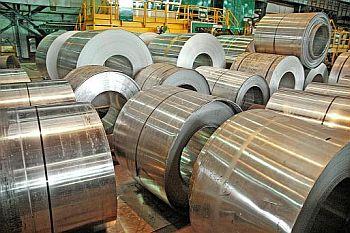Minimum import price will protect steel industry; no relief for aluminium makers

NEW DELHI, FEBRUARY 8: By imposing a minimum import price ranging from $341 to $752 a tonne on 173 steel products, the Centre has provided relief to domestic steel manufacturers who were hit by cheap imports and the global slowdown in commodity prices.
But, the global slowdown has left the aluminium industry in the lurch with thin margins and low production.
Addressing banks’ exposure to the steel industry has been given priority over a potential drop in investments in aluminium, a senior Government official told BusinessLine.
Steel, a part of the eight core sectors, saw its first dip in production in five years, according to the core sector data for April-December 2015. Core sector growth for the period stood at 1.9 per cent.
Apart from steel production, which was 1.9 per cent lower according to the data, the sluggish core sector growth also reflected the fall in production of crude oil and natural gas. Steel has a weightage of 6.68 per cent in the index of industrial production (IIP) and its weightage is the second highest among the eight core sectors.
Production drop
Domestic steel production between April-January 2015 fell 1.8 per cent to 75.66 million tonnes, while imports rose 24.1 per cent to 9.3 million tonnes. Consumption grew 4.2 per cent to 65.91 million tonnes.
Debt-fuelled capacity expansion has meant that the total exposure of banks to the steel sector stood at around ₹2,98,500 crore as on December 25, 2015. Most companies are overleveraged with half of this debt lying with companies having a debt to EBIDTA ratio greater than 12.
Between December 2014 and December 2015, ₹8,891 crore of debt with the steel sector entered corporate debt restructuring. As of December 2015, the sector accounted for the highest amount of loans under CDR, at ₹54,051 crore.
In comparison, banks’ exposure to the entire metals sector, which includes aluminium, is around ₹1,02,300 crore.
Over the next five years, the aluminium industry has planned an investment of ₹1,20,000 crore but this has been put on hold due to existing constraints because of the low prices of the metal.
“It is true that aluminium was suffering in the early part of the fiscal, but some revival is being seen by the large manufacturers. Iron ore is something we are always monitoring but as of now there is no reason for a policy intervention,” the government official added. Steel manufacturers still have about 85 per cent market share in the domestic market.
According to Commerce Secretary Rita Teaotia’s statement in January, the industry, which has nearly 120-million-tonne capacity, is still operating at about 80 per cent utilisation. Tata Steel, JSW Steel and Steel Authority of India Ltd have already reported a combined net loss of ₹1,023 crore in 2015-16. SAIL, which will announce its third-quarter results on February 9, could increase the combined net loss figure.
In comparison, domestic aluminium production is expected to remain almost flat in 2015-16 while industry-wide capacity utilisation is expected to be at around 50 per cent. The market share of imports in the domestic market stood at around 56 per cent at the end of September 2015-16.
Quarterly earnings
National Aluminium Company Ltd, Hindalco and Vedanta Ltd have reported combined earnings before interest and taxes of ₹401.63 crore from the aluminium business so far in 2015-16. Hindalco and NALCO are due to announce their third-quarter results over the course of this week and this will impact the number.
“The steel sector benefits from being part of the index of industrial production. Any impact here impacts headline economic indicators of the country. We continue to make representations with the government while undertaking cost optimisation measures,” said an official of Aluminium Association of India.
For domestic steelmakers, apart from the minimum import price, the import duty has also been raised to 10 per cent for flat products and 7.5 per cent for long products. However, the import duty on aluminium remains at 5 per cent and for aluminium scrap it is even lower at 2.5 per cent.
“The notification of a minimum import price on steel products is indeed a step in the right direction. The steel industry has gone through very challenging times and this development augurs well for the industry,” said a Jindal Steel and Power spokesperson.